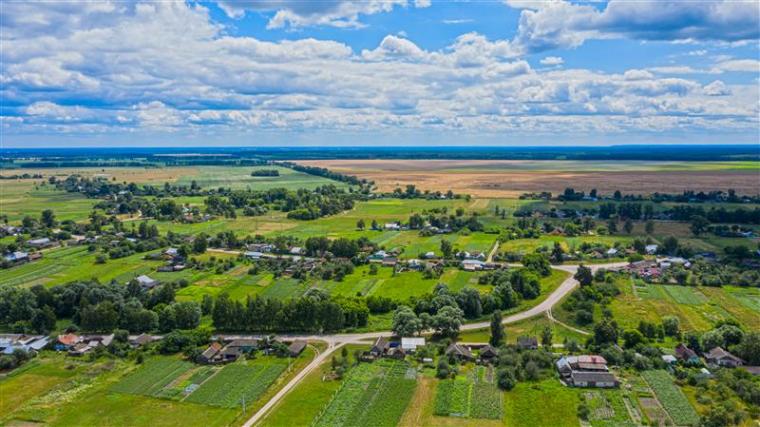
The Funding Boosts U of G Research in Rural Community Health and Resilience.
A strong agri-food system begins with strong, resilient communities—and supporting rural Ontarians is at the heart of a new gift to the University of Guelph’s Ontario Agricultural College (OAC). The $1.65-million gift from the McCall MacBain Foundation [1] will support a data-driven initiative led by Dr. Leith Deacon [2]that aims to improve the health and well-being of rural communities across Ontario, with plans to expand data collection and impact throughout Canada.
Deacon, a professor in the School of Environmental Design and Rural Development will be appointed the inaugural McCall MacBain Chair in Resilient Rural Communities, launching the HEAR initiative (Health, Economy, and Adaptation in Rural Communities). Working alongside graduate students and post-doctoral fellows, Deacon will lead data collection efforts aimed at informing and improving rural policies and planning, while making data more accessible and inclusive in Ontario.
Beginning in 2026, rural Ontario residents will be surveyed on three topic areas:
- Health: including physical and mental health, addictions, and healthcare access;
- Economics: including employment, migration, and local production;
- Adaptation: including climate change, biodiversity, innovation, and emergency preparedness.
These areas highlight the complex challenges rural communities face—challenges often missed in urban-focused data. According to Deacon, HEAR will help close this rural data gap and ensure that policies reflect rural realities.
“Rural communities are incredibly diverse and face a unique set of challenges, particularly in healthcare,” says Deacon. “Unfortunately, the data we have today doesn't often reflect their reality. The support from the McCall MacBain Foundation will allow us to gather the high-quality, community-specific data we need to create meaningful, long-term change in Ontario.”
Focus on Data Equity in Rural Communities
A key aspect of HEAR is its focus on making data accessible and useful for rural communities. An online dashboard will share important findings in a clear and user-friendly way, helping support a range of local needs such as funding applications, policy development, and planning efforts. The platform will also include a tool for users to request specific data, ensuring that rural stakeholders can access and apply the information in meaningful and practical ways.
“The dashboard will include a data request portal, allowing rural stakeholders to submit tailored data queries,” says Deacon. “By grounding this feature in transparency, reciprocity, and inclusion, we’re ensuring that the data collected from rural communities is not only accessible, but truly useful to the people it represents.”
This research builds on a project Deacon launched during the COVID-19 pandemic [3] that received nearly 25,000 responses, which surveyed residents from nine counties in Ontario about the impacts of the crisis on their mental health and access to care. The overwhelming response highlighted the urgent need for sustained and localized data collection across Canada.
“This project will fill a critical gap and provide trusted, actionable insights that can help shape policy and practice in rural communities,” says OAC dean Dr. John Cranfield. “We are deeply grateful to the McCall MacBain Foundation for their visionary support.”
In addition to the survey, the funding will support the hiring of students and a postdoctoral fellow, the creation of a project steering committee, and public dissemination of research findings.
“The long-term vision is to establish a centre for resilient rural communities, a national hub for data and analysis housed within OAC,” adds Cranfield. “This future centre will provide a robust and ongoing inventory of rural insights to support thriving communities across Canada.”
The McCall MacBain Foundation’s mission is to improve the welfare of humanity through philanthropic investments in education, climate, and health. This gift reflects their continued commitment to building resilient and equitable systems.
“We believe in supporting data-driven approaches that strengthen communities,” says Alexandra Conliffe, CEO of the McCall MacBain Foundation. “This initiative promises to empower rural Ontarians through knowledge, collaboration, and sustained action.”
Contact:
Dr. Leith Deacon
leith.deacon@uoguelph.ca [4]